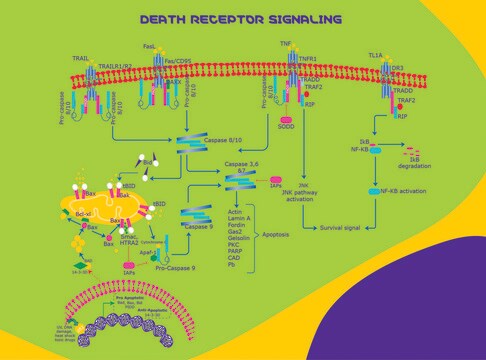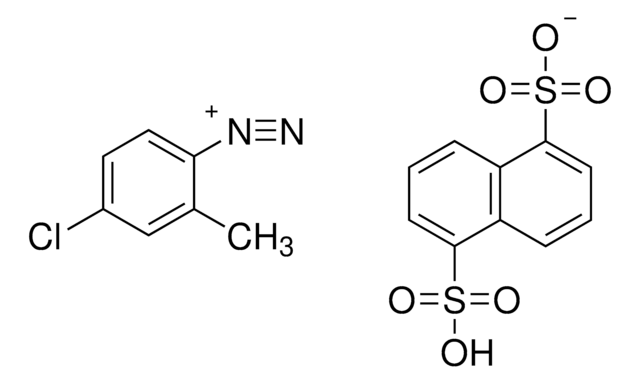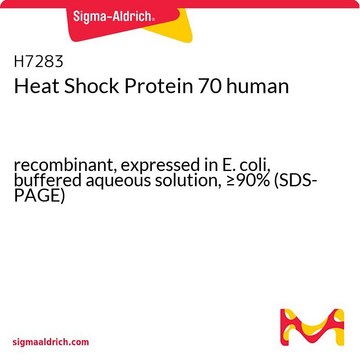GF092
TRAIL Protein, Recombinant human
Human TRAIL (TNF-Related Apoptosis Inducing Ligand), also called APO2 Ligand, is a cytotoxic protein which activates rapid apoptosis in tumor cells, but not in normal cells.
Sinónimos:
Apo2 Ligand
About This Item
Productos recomendados
biological source
human
Quality Level
recombinant
expressed in E. coli
assay
>98% (SDS-PAGE and HPLC)
form
solid
mol wt
19.6 kDa
manufacturer/tradename
Chemicon®
technique(s)
cell culture | mammalian: suitable
impurities
<0.1 ng/μg Endotoxin (of TRAIL/Apo2L; 1EU/μg)
input
sample type hematopoietic stem cell(s)
suitability
suitable for molecular biology
NCBI accession no.
UniProt accession no.
shipped in
dry ice
Gene Information
human ... TNFSF10(8743)
General description
Application
Biochem/physiol Actions
Physical form
Storage and Stability
Legal Information
Disclaimer
Storage Class
11 - Combustible Solids
wgk_germany
WGK 3
Certificados de análisis (COA)
Busque Certificados de análisis (COA) introduciendo el número de lote del producto. Los números de lote se encuentran en la etiqueta del producto después de las palabras «Lot» o «Batch»
¿Ya tiene este producto?
Encuentre la documentación para los productos que ha comprado recientemente en la Biblioteca de documentos.
Nuestro equipo de científicos tiene experiencia en todas las áreas de investigación: Ciencias de la vida, Ciencia de los materiales, Síntesis química, Cromatografía, Analítica y muchas otras.
Póngase en contacto con el Servicio técnico







